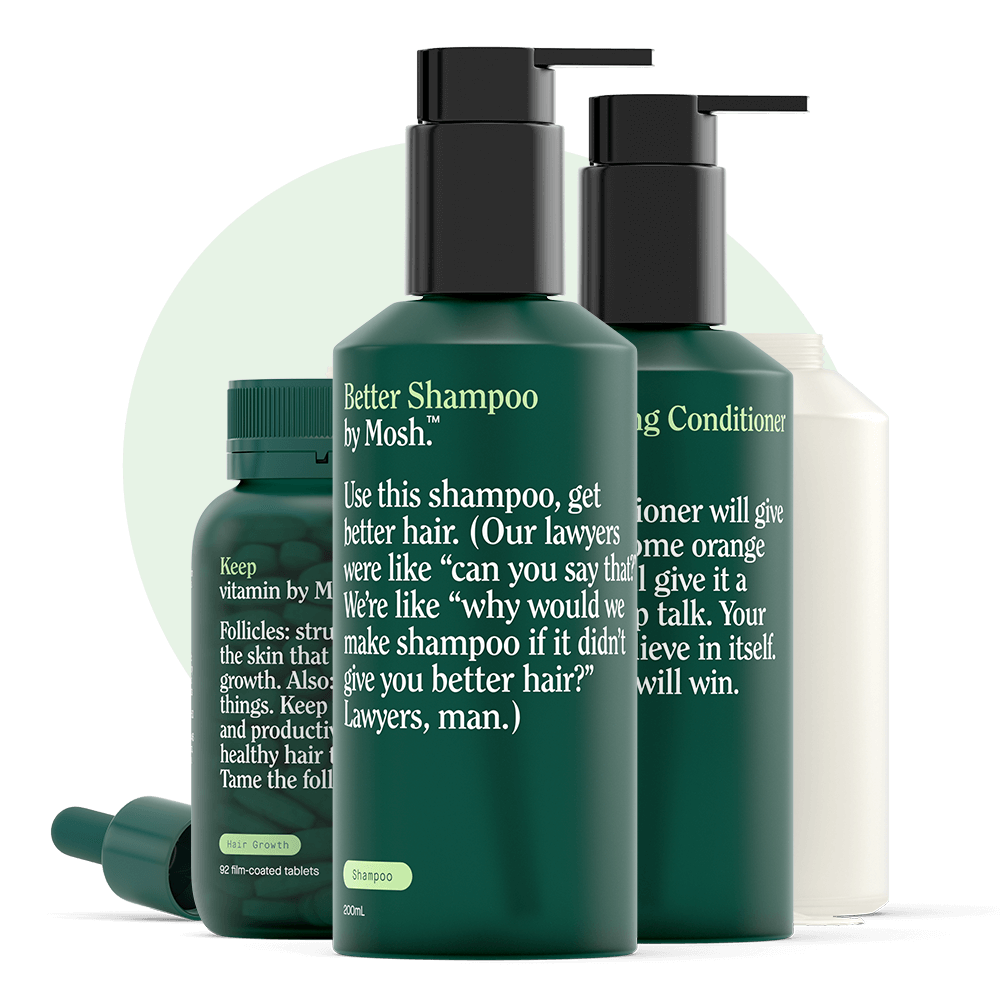


You may have heard about rosemary oil as a potential solution for hair growth, but what's behind its rising popularity? This natural remedy claims to tackle hair loss while promoting healthier strands, thanks to its unique blend of antioxidants and anti-inflammatory properties. [1] By applying it correctly, you could create an ideal environment for your scalp.
Still, you might wonder about the most effective application methods, possible side effects, and how long it really takes to see results. Let's explore these aspects to uncover whether rosemary oil is worth adding to your hair care routine.
Rosemary oil is an essential oil derived from the leaves of the rosemary plant, Rosmarinus officinalis. This aromatic oil has been cherished for centuries, not just for its delightful scent but also for its potential benefits for your hair and scalp. Understanding more about rosemary oil can help those struggling with hair issues.
Rich in antioxidants and anti-inflammatory properties, rosemary essential oil promotes a healthy scalp environment. It's known to stimulate blood circulation, which can invigorate the hair follicles and may encourage hair growth.
When you apply this oil, you might be helping to nourish and support the hair follicles, reducing the chances of hair loss.
It's easy to incorporate into a hair care routine — just mix a few drops with a carrier oil and massage it into the scalp.
Many people wonder if rosemary oil is actually the best hair growth oil to help with hair loss. The good news is that it's gaining attention as a natural remedy to prevent hair loss. You may find that incorporating rosemary oil into your hair care routine could support your efforts in promoting thicker, healthier hair.
Research suggests that rosemary oil may stimulate blood circulation in the scalp, which is essential for delivering nutrients to hair follicles. [2] By increasing blood flow, you help create a healthier environment for hair growth. Additionally, rosemary oil has been known for its anti-inflammatory properties, [3] which can soothe the scalp and reduce irritation that sometimes contributes to hair loss.
Using rosemary oil is simple. Just mix a few drops with a carrier oil, like coconut or olive oil, and massage it into your scalp. This practice not only nourishes the hair follicles but also allows you to take a moment for self-care. Many people appreciate the calming scent, turning this routine into a relaxing experience.
While results may vary, [4] giving rosemary oil a try could be a step toward helping those you serve find solutions for hair loss. After all, everyone deserves to feel more confident in their appearance.

Rosemary oil isn't just great for hair growth; it offers several other benefits too. Its anti-inflammatory properties can soothe the scalp, while its antioxidant content helps protect hair follicles. By incorporating rosemary oil into your routine, you might enhance not only hair growth but overall scalp health as well.
When you use rosemary oil, you're not just promoting hair growth; you're also tackling dandruff. Its antifungal properties help keep your scalp healthy and free of flakes. A healthier scalp supports better hair growth, making rosemary oil a powerful ally in your hair care routine.
Dandruff can be a frustrating issue, but incorporating rosemary oil into your hair care routine may provide relief. Its anti-inflammatory and antimicrobial properties help soothe the scalp, reducing irritation and flakiness. By promoting a healthier scalp environment, rosemary oil not only aids in hair growth but also helps you serve others by improving your confidence and enhancing their overall well-being.
Applying rosemary oil effectively can greatly enhance its benefits for hair growth. To start, you'll want to dilute the oil with a carrier oil, like coconut or jojoba oil, to avoid any irritation. Mix about 5 drops of rosemary oil with a tablespoon of your chosen carrier oil. This combination will nourish your scalp while promoting hair growth.
Next, part your hair and apply the mixture directly to your scalp using your fingertips or a dropper. Focus on areas where you notice thinning or hair loss, gently massaging the oil into your scalp for about 5-10 minutes. This not only helps the oil penetrate better but also stimulates blood circulation, encouraging hair follicles to thrive.
After applying, let the oil sit for at least 30 minutes, or even overnight for deeper absorption. You can then wash it out with a mild shampoo. For best results, consider repeating this process 2-3 times a week.
By incorporating rosemary oil into your routine consistently, you're investing in your hair's health and well-being.
While rosemary oil can be beneficial for hair growth, it's important to be aware of potential side effects. You might experience scalp irritation, especially if you have sensitive skin. It's best to perform a patch test before using it extensively. Just apply a small amount diluted with a carrier oil on your forearm and wait 24 hours to see if any irritation occurs.
Some people report allergic reactions, which can include redness, itching, or rash. If you notice these symptoms, discontinue use immediately. Additionally, rosemary oil may not be suitable for everyone. Pregnant or breastfeeding individuals should consult a healthcare professional before using it, as the effects aren't fully understood in these cases.
If you have a pre-existing condition or are on medication, it's best to talk to your doctor. They can guide you on whether rosemary oil is a good option for you.
Ultimately, while you might find rosemary oil helpful, being cautious and informed will help you better in your hair care journey. Prioritising safety guarantees that you can enjoy the benefits of rosemary oil without any unnecessary risks.
When it comes to using rosemary oil for hair growth, patience is key. Most people start seeing an improvement in hair growth after about three to six months of consistent use. [5] During this period, you'll want to apply the oil regularly — ideally two to three times a week — to truly harness its benefits.
Remember though that everyone's hair is unique, and factors like genetics, health, and overall hair care routines can influence how quickly you notice results. It's important to maintain a holistic approach, incorporating a balanced diet and proper hair care practices alongside your rosemary oil application.
You may also want to keep track of your progress, documenting changes over time. This not only helps you stay motivated but also allows you to share your experience with others who might benefit from rosemary oil as well.
Ultimately, stay committed to your routine, and soon enough, you may be on your way to achieving healthier, fuller hair.
Incorporating rosemary oil into your hair care routine can be a game-changer for promoting growth and reducing hair loss. With its natural properties and ease of use, you can nurture your scalp and enhance your hair's health effectively. Just remember to mix it with a carrier oil for the best results, and be patient as you wait for changes to show. With consistent application, you may notice improvements in just a few months!
If you're searching for the best oil for hair growth, Mosh offers some of Australia's top hair loss treatments, tailored to your individual needs by certified health practitioners.
With a variety of options, from medications to topical treatments, and access to medical professionals for guidance, you can find the right plan to regain confidence in your hair.
Apart from hair loss treatments, Mosh also provides tailored treatment plans for weight loss, skincare, and sexual health — supporting you in enhancing your overall wellness from the comfort of your home.













Ready to Treat Hair Loss?